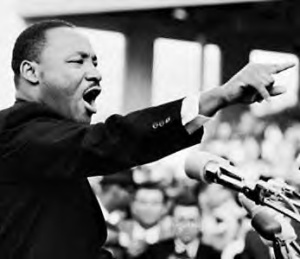In Washington D.C., Reverend Martin Luther King Jr. delivered a historically memorable speech at the steps of the Lincoln Memorial on Aug. 28, 1963.
King opened his speech by stating, “I am happy to join with you today in what will go down in history as the greatest demonstration for freedom in the history of our nation.”
The demonstration that King was referring to was the March on Washington for Jobs and Freedoms.
He gave the proclaimed, “I Have a Dream” speech to over 200,000 of his supporters for the American Civil Rights Movement.
King correlates the modern life of African Americans to be similar to the life of African Americans 100 years ago.
King stated, “The negro finds himself in exile in his own land.”
King expressed his desire for black men as well and white men to have life, liberty, and the pursuit of happiness.
King explained that African Americans had been given a “America has given the negro people a bad check. A check that has come back marked insufficient funds.”
During King’s speech, his supporters reinforce their strong respect and enthusiasm for King with applause.
King stated, “1963 is not an end, but is a beginning for African American civil rights.”


